Cztery członkinie Rady Programowej naszego Centrum wzięły udział w cyklicznej, międzynarodowej konferencji The Child and the Book Conference, która odbyła się w dniach 26-28 maja 2022 na Uniwersytecie Maltańskim. Tytuł tegorocznej konferencji brzmiał: The Role of the Child as Citizen: Constructing Childhood through Agency and Activism.
Dr hab. Justyna Deszcz-Tryhubczak, prof. UWr wygłosiła jeden z trzech wykładów plenarnych pt. „Becoming Activist in Children’s Literature Studies” oraz moderowała panel 18 – Beyond Disabling Stereotypes.
Dr hab. Barbara Kalla, prof. UWr przedstawiła referat „21st-Century Children’s Literature about the Holocaust and Citizenship Education: Ecocritical Reading in a Comparative Approach” i moderowała panel 13 – Children’s Role In The Climate Crisis.
Dr Bożena Hojka i dr Elżbieta Jamróz-Stolarska przedstawiły referat „Polish Children’s Literature in the Battle for Children’s Rights”.
W Radzie Programowej konferencji znalazły się cztery członkinie Rady Naukowej Centrum: dr Marnie Campagnaro (Università degli Studi di Padova, Włochy), prof. Bettina Kümmerling-Meibauer (Eberhard Karls-Universität Tübingen, Niemcy), prof. Ana Margarida Ramos (Universidade de Aveiro, Portugalia) oraz nasza koleżanka z Wrocławia dr hab. Dorota Michułka, prof. UWr (Uniwersytet Wrocławski).
Poniżej zamieszczamy pamiątkowe zdjęcia oraz streszczenie wykładu plenarnego dr hab. Justyny Deszcz-Tryhubczak, prof. UWr.
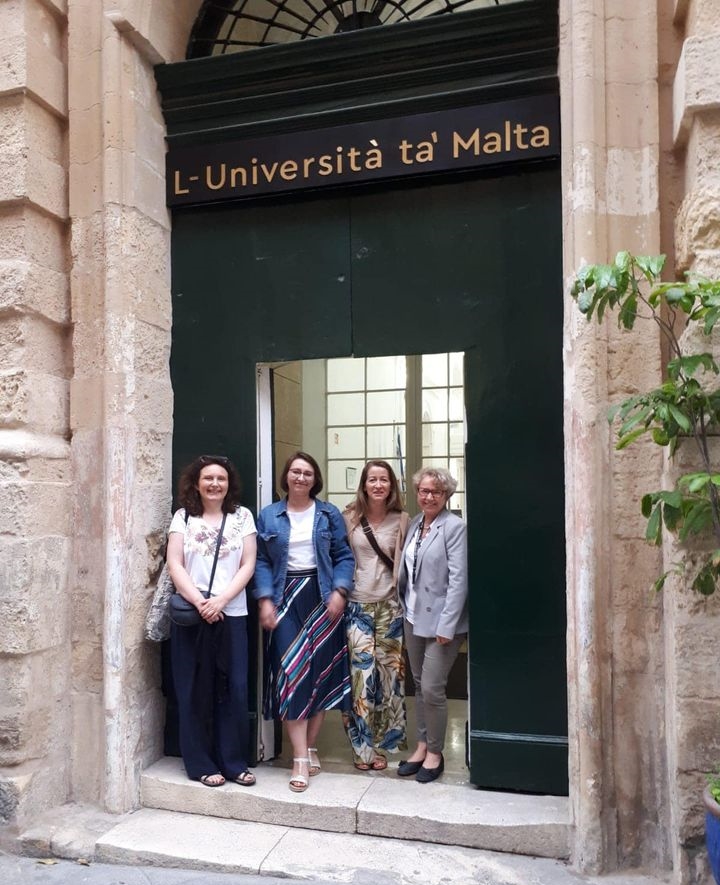
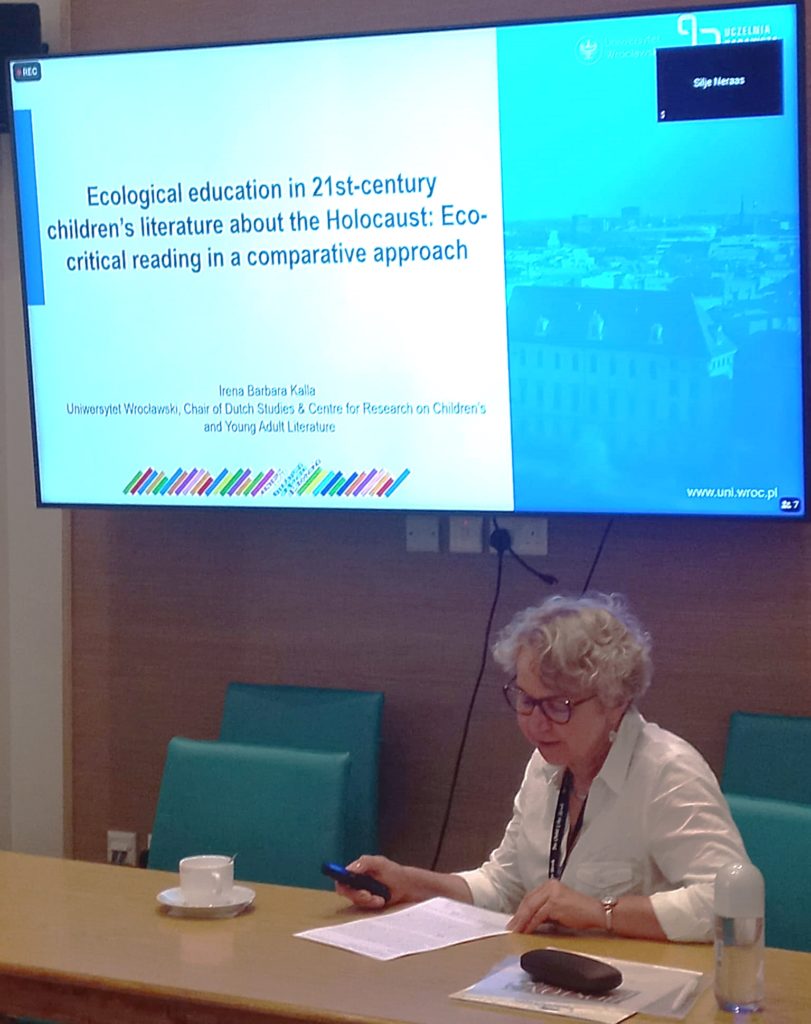
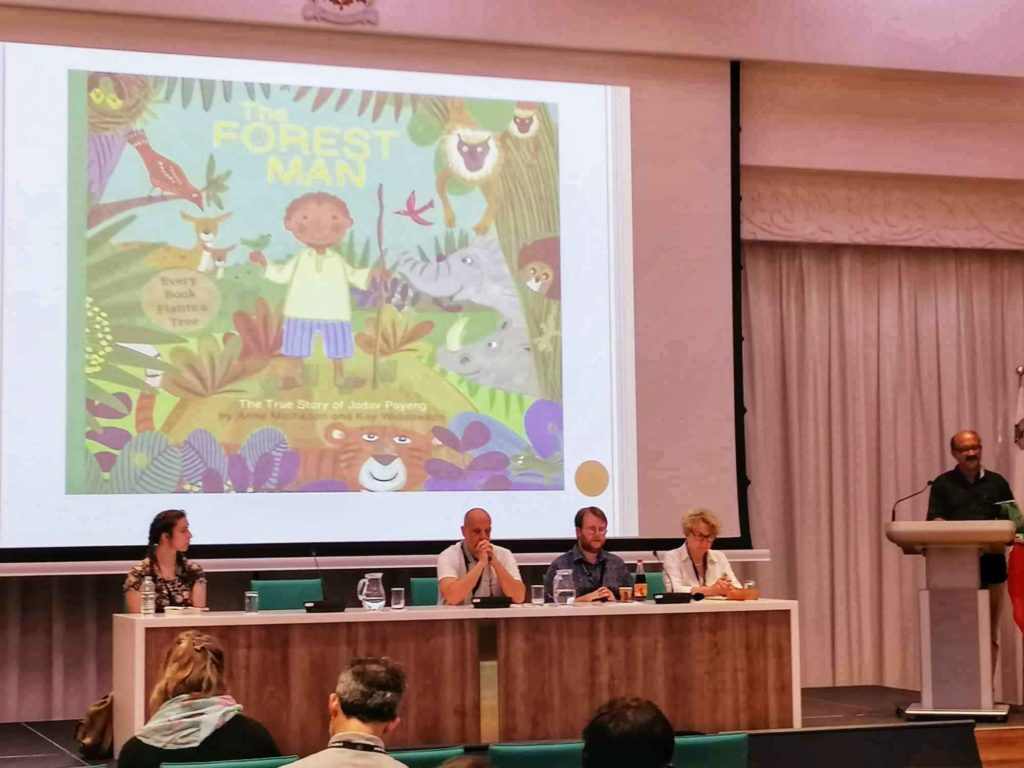
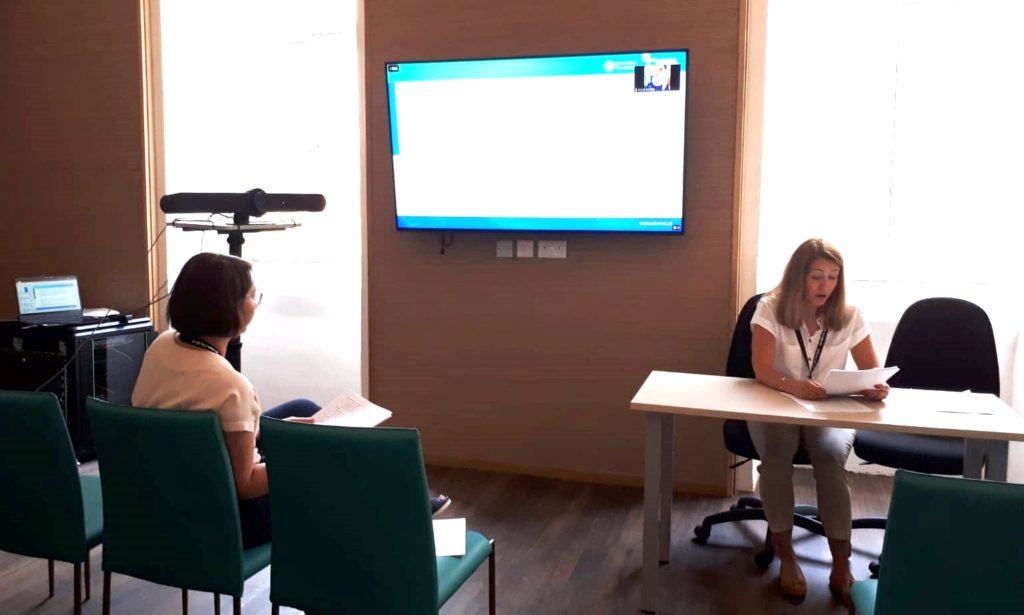
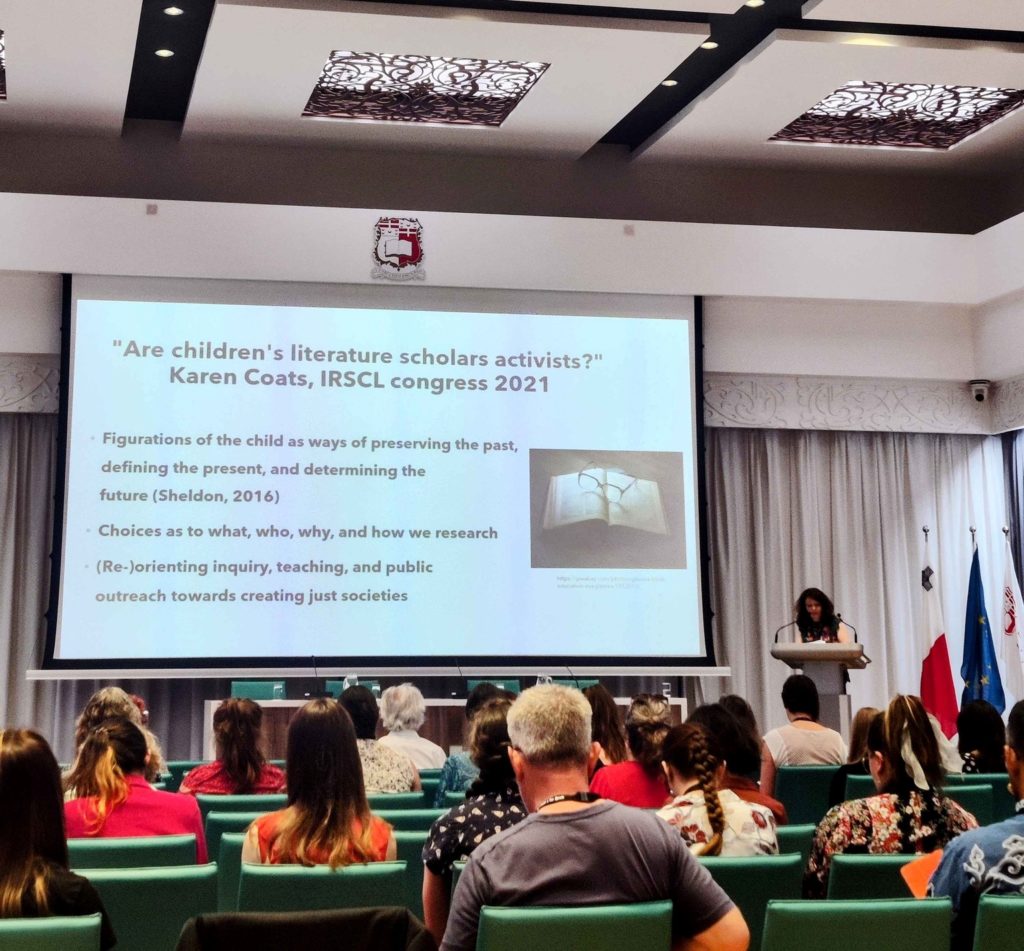
Dr hab. Justyna Deszcz-Tryhubczak, prof. UWr, Becoming Activist in Children’s Literature Studies (streszczenie wykładu)
Activism is commonly associated with deliberate, partisan, heroic, and vigorous collective actions and events propagating and effecting social and political change. Academic activism shares these commitments by using knowledge created from inside social movements to challenge the oppressive status quo and fight social injustice. Moreover, university classrooms are important sites of activism that can foster students’ critical reflection, empower them politically, and inspire their collective responsibility and dedication to pursue freedom from oppression in and outside academia. Finally, regardless of whether we think of our research as engaged scholarship, we are hard-pressed to evidence its impact beyond academia. A result of the commodification of university education and its turning into a service industry, evaluations of impact may mean depoliticization of activist engagement and entrenchment of oppressive structures. Nevertheless, they are also a reminder that we cannot be occupied with the pursuit of knowledge for its own sake but should be ready to respond to the reality in which we live by developing invigorating modes of thought and practice. I suggest that we also often engage in implicit activism (Horton and Kraftl 2009), which manifests in small, everyday, even banal and frequently ephemeral, acts, gestures and words of care – in our research, teaching and service with readers and books – that ultimately translate into activist commitment to re-imagining how things might be otherwise. To substantiate my proposition, I explore international examples of academic activism in our field and draw on the ethics of care (Puig de la Bellacasa 2017), the new materialist concept of becoming (Barad 2007), and the discussions about collaboration, solidarity, and kinship taking place in feminist new materialisms to show that even through very modest and discrete actions we challenge oppressive and exploitative structures. Ultimately, I argue that activist research involving children’s books and young readers is likely to gain importance as a vital direction in children’s literature scholarship, contributing to its social and political impact.
